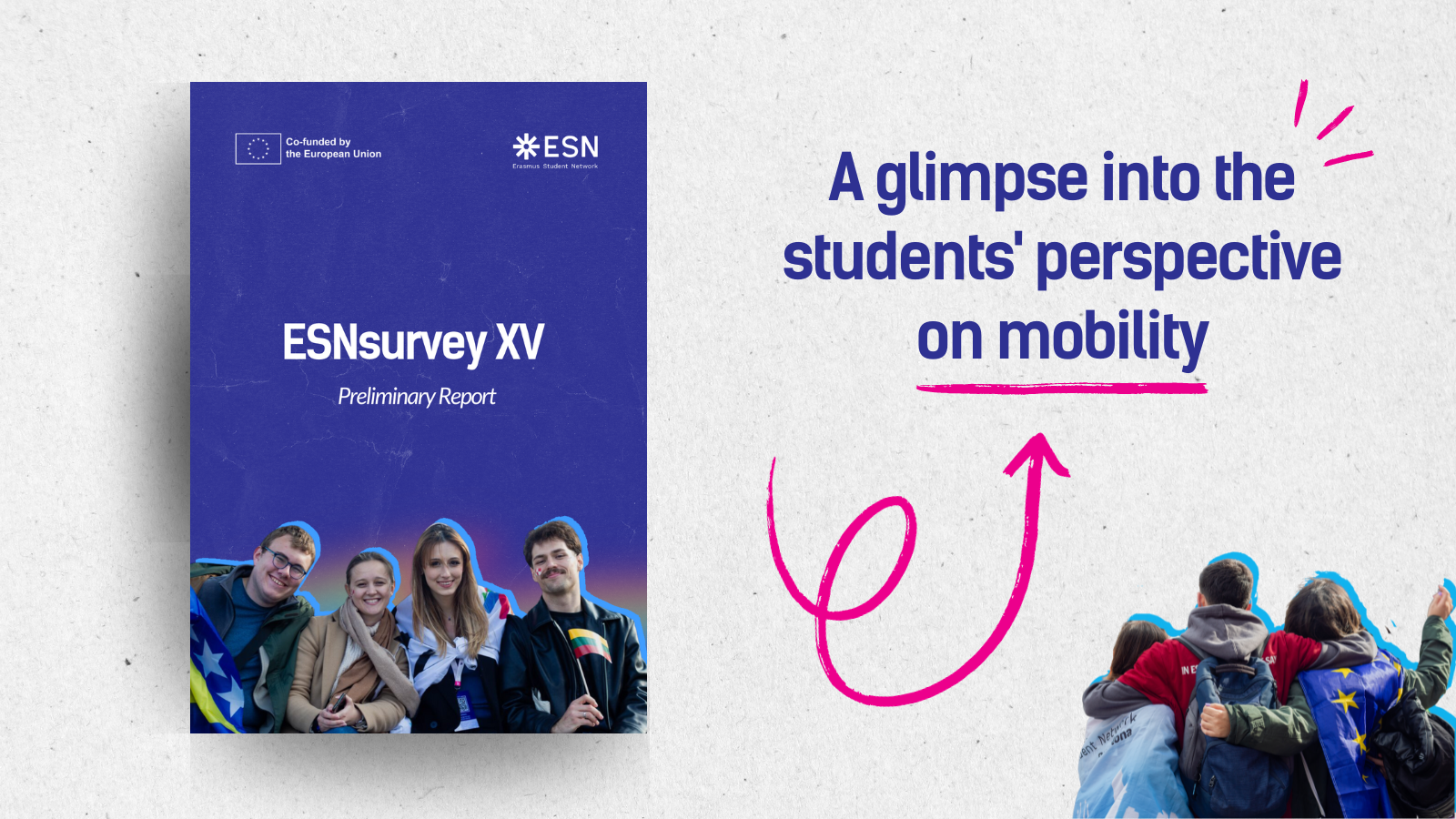
On the 29th of May, ESN launched the new edition of its flagship research project, the XV ESNsurvey. The data collection was open until the 31st of July, and it targeted students who have participated in exchange programmes or mobilities abroad during the last two years, as well as students who have not taken part in mobility yet.
The XV ESNsurvey collected 17,855 answers from exchange students, 1,856 answers from full-degree students and 3,064 from non-mobile students. The success of this data collection effort can be attributed to the support and collaboration of numerous stakeholders such as the European Commission, the European Parliament, National Agencies, Higher Education Institutions, Networks of Universities and European Alliances.
In light of the ongoing midterm evaluation process of the Erasmus+ programme, ESN has launched a preliminary report with the first key findings addressing the student voices' perspective on international mobility.
During this preliminary report, we've gained valuable insights into the primary trends among students who participated in mobility between 2021 and 2023. It’s important to highlight the positive impact of the implementation of the Erasmus+ 2021-2027 priorities, especially the inclusion of one, with 36% of respondents agreeing, and 46% strongly agreeing with these measures.
Findings related to exchange students highlight the need for accessibility of information, with 82% of the respondents reporting as a priority the need for information about available financial support. The challenges faced by students often revolve around insufficient money to cover the cost of living (35,63%), difficulty finding affordable housing (35,5%), and course-matching problems during their exchange period (33,97%).
Grants, while being distributed to more students before departure, student purchasing power is affected by the fundamental issues of insufficient funding and the high cost of housing during mobility. Additionally, there's room for improvement in terms of environmental sustainability and digitalisation in the exchange student experience, particularly concerning travel choices (many students still use planes) and access to online processes.
Credit recognition continues to be a concern, where 42% of students reported changes to their courses during their exchange. Lastly, while students generally express satisfaction with the services provided by Higher Education Institutions, it's worth noting that compared to the previous survey, there has been an increase in dissatisfaction rates, both with sending and hosting institutions.
On the knowledge of non-mobile students on Erasmus+ initiatives among students, it's evident that Erasmus+ for studies stands out with 95%. However, initiatives like the Blended Intensive Programme (9%) tend to be less familiar among higher education students, indicating a need for increased awareness about these opportunities.
We are excited to announce that the final report is scheduled for launch in December. Through this data results, we're also looking forward to collaborating with our many partners to improve the mobility of international students.
For any queries about the XV ESNsurvey, don’t hesitate to contact [email protected].


Follow ESN